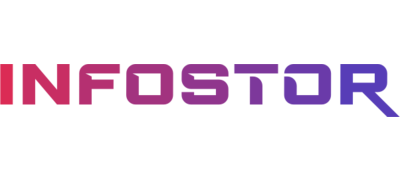Brocade is making good on its post-McData acquisition product road map with the launch of nearly a dozen enhancements to its SAN and file area network (FAN) offerings, all while tightening interoperability between the companies’ respective products and attempting to shed its reputation as a block-level-only storage company.
Brocade beefed up a number of its SAN hardware and software products with new management, virtualization, interoperability, and connectivity enhancements. For example, the company announced the addition of 10Gbps Fibre Channel connectivity to its 48000 director in the form of the new FC10-6 blade, which is aimed at connecting systems between remote sites for high-performance business continuity and disaster-recovery applications.
The FR4-18i router blade and model 7500 routing platform have also been tweaked to offer better performance for remote disaster-recovery applications with the addition of Fast Write acceleration technology. Fast Write improves the response times of synchronous applications over longer distances and boosts the overall throughput of data transfers over dark fiber or xWDM WAN links for more- efficient utilization of WAN bandwidth. Brocade officials claim the Fast Write feature improves data protection by accelerating the performance of remote disaster-recovery applications, such as disk mirroring, by up to 200%.
Beyond the “speeds and feeds,” Brocade also announced a number of enhancements to both the Enterprise Fabric Connectivity Manager (EFCM) and Fabric Manager, its dueling SAN infrastructure management applications. The company added Advanced Call Home features to EFCM and performance monitoring functionality to Fabric Manager.
The future foundation of Brocade’s SAN management software will be the EFCM, formerly known as the McData EFCM. The Fabric Manager software will continue to be offered and enhanced until its functionality is built into a converged EFCM application, which is due next year.
Brocade has stated that it will sell and support existing Brocade and McData products through the end of this year with the ultimate goal of combining the best elements of the portfolio into common, integrated hardware and software products in 2008.
“One of our biggest efforts is in achieving full interoperability between Mc- Data and Brocade fabrics and products like the Brocade Access Gateway, and the enhancements to EFCM help with that interoperability,” according to Truls Myklebust, senior director of product marketing for Brocade’s FAN solutions.
To that end, the Brocade Access Gateway, a virtualization platform that enables interoperability between Brocade and McData switches, will now be available on the entry-level Brocade 200E switch.
The company also released the next generations of its Fabric Application Platforms for virtualization-the FA4-18 application blade for the 48000 director and the model 7600 Application Platform. The Fabric Application Platform serves as the foundation for virtualization solutions such as EMC’s RecoverPoint and Invista.
FAN Features For Branch Offices
Brocade hasn’t forgotten about the file-level world. In fact, it’s fast becoming a main focus of the company’s overall data-center strategy. The company continues to build out its FAN portfolio for advanced file-based data management and protection from the data center to the branch office and back.
Topping the FAN upgrades is a new release of StorageX. Version 6.0 of the software features additional capabilities for file migration in both CIFS and NFS environments. The release provides tighter integration with Windows Server 2003 R2, broadens Unix platform support, and allows organizations to have more control over data movement during migration and storage load balancing procedures.
“StorageX has always been very focused on Windows [CIFS] environments and that has served us well, but obviously we see customers with environments that also have Unix [NFS],” says Myklebust, “so we’re rolling out much broader coverage and support for other environments.”
Brocade also unveiled a new version of its File Lifecycle Manager (FLM) product. FLM Version 4.0 touts more- efficient automated file migration and restoration without system downtime. FLM’s claim to fame is its ability to create tiers of storage in Network Appliance NAS environments.
“These new products are all about increasing efficiencies in the data center,” says Doug Ingraham, Brocade’s senior director of SAN product management.
“Brocade is moving away from being just a block-level SAN company toward tackling other issues such as data management and bringing branch office data back to the data center.”
Improving interoperability within its own products, moving beyond the block level to become more of a data management provider, and broadening its reach in the branch office are all important goals that Brocade must execute in order to remain a major player in the market, according to Richard Villars, vice president of storage systems research at IDC.
“Delivering interoperability between Brocade and McData products is key for Brocade from the standpoint of protecting the customer base and reassuring them they can deliver on their promises, but now that they have merged the company wants to start adding functionality to make them more valuable as a partner,” says Villars.
Moving Beyond Block-Level Storage
Villars says Brocade’s attempt to move beyond block-level storage is a direct reaction to two big trends in the storage industry: the massive expansion of file-level data and the move toward virtualized infrastructures via blades and virtual server solutions.
“Brocade wants to be a critical player in the data center and not just a component supplier,” Villars says. “There is a need to manage file-level data while simultaneously managing block-level storage and, if you want to play in the data center, there is going to be a big opportunity in automating and creating more-effective solutions for virtualized infrastructures.”
Further evidence of Brocade’s plans to become a key vendor in the data center of the future was its recent entry into the Fibre Channel host bus adapter (HBA) market via a reseller deal with LSI (see “Brocade enters HBA market via LSI,” above).

